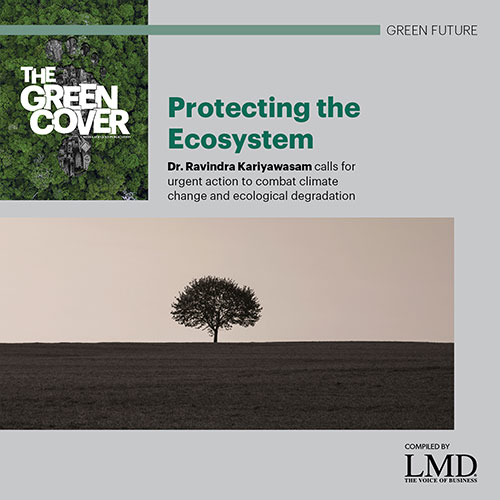SUSTAINABLE TOURISM
Sustainability Certification
Michael Dias says this certification is vital for Sri Lanka’s tourism industry and long-term benefits
Sri Lanka, with its breathtaking landscapes, rich biodiversity and vibrant culture, is a premier destination for travellers from around the world. However, the increasing influx of visitors poses considerable challenges to the environment and local communities.
To mitigate these challenges, it’s essential for hotels and tour operators in Sri Lanka to obtain sustainability certification. This not only helps preserve the island’s natural and cultural heritage but also ensures long-term economic benefits for the tourism industry.
“One of the key reasons for attaining sustainability certification is the protection of Sri Lanka’s unique environment,” says Michael Dias. The island is home to diverse ecosystems, including rainforests, coral reefs and wildlife sanctuaries. Unsustainable tourism practices can lead to habitat destruction, pollution and the depletion of natural resources.
He explains: “By adhering to sustainability standards, hotels and tour operators can substantially reduce their environmental footprint by implementing energy efficient measures, minimising waste, conserving water and promoting the use of renewable energy sources.”
Sustainability certification also enhances the overall guest experience. Today’s international travellers are increasingly conscious of their environmental impact and prefer to support businesses that prioritise sustainability.
Certified hotels and tour operators attract responsible travellers by offering environmentally-friendly accommodation and sustainable tourism experiences. These offers not only help improve guest satisfaction but also contribute to enhancing the reputation of the business. Dias notes: “A commitment to sustainability fosters customer loyalty and leads to repeat visits and word-of-mouth recommendations.”
Economic advantages are another major benefit of sustainability certification. Certified businesses often experience cost savings through improved resource management and reduced operational expenses. For instance, energy efficient lighting and water saving fixtures are two small examples that can help lower utility bills.
Additionally, sustainability certification opens up new marketing opportunities and business partnerships. According to Dias: “Many international travel agencies and tour operators prefer to collaborate with certified businesses that offer access to a broader and more environmentally conscious customer base.”
Sustainable tourism practices play a crucial role in empowering local communities. Certification standards often include criteria for fair labour practices, community engagement and cultural preservation.
Dias continues: “By sourcing products and services locally, hotels and tour operators contribute to the local economy and create employment opportunities.” Promoting cultural heritage and involving local communities in tourism activities not only preserves traditions but also fosters a sense of pride among residents.
Although tourism may initially be seen as a positive thing, over time and in cases of over tourism, it could have a negative impact on the local communities. Sustainability certification can help mitigate these negative impacts by promoting responsible tourism practices that benefit both the environment and local communities, and enable the maintenance of a positive relationship between residents and tourists.
Achieving sustainability certification ensures that hotels and tour operators adhere to internationally recognised standards and best practices. Organisations such as the Global Sustainable Tourism Council (GSTC) provide guidelines and criteria for sustainable tourism.
Dias adds: “By aligning with these standards, Sri Lankan businesses can enhance their credibility and competitiveness in the global market. In addition to which, such certification also serves as a testament to a company’s commitment to responsible tourism, and this contributes to making it more attractive to responsible travellers and investors.”
“A sustainability journey is not simply about obtaining a certificate. It is about transforming the organisational culture, much like a snake shedding its skin. This evolution is essential to embed sustainability into the core of business operations that will ensure long-term success and meaningful environmental and social impact,” says Dias.
Certified businesses are required to continuously monitor and improve their practices to make sure that Sri Lanka’s tourism industry remains viable for future generations.
– Compiled by Indrajit Lankeshwara
Michael Dias
Partner & Senior Sustainability Consultant
Sustainable Sri Lanka








